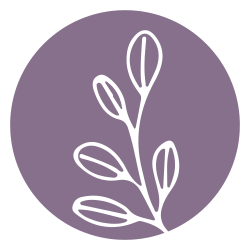Deep Relaxation Through Reiki & Sound Therapy
By Miriam Lyon, Certified Sound Therapist & Reiki Teacher/Practitioner
When talking about my Sound Therapy & Reiki practice, I often mention the deep states of relaxation that clients experience with me.
Why is relaxation so important to our overall well being?
Well, I’d like to take a minute, just sit right there (;)) and I’ll tell you how these states support healing on all levels.
You’ve probably heard about the Fight or Flight (or Freeze) response: when we encounter a life threatening situation, stress hormones encourage us to fight or run - hearts pounding, blood pressure goes up. The glitch is that we now respond the same way to everyday stressors, like when you’re trying to focus on your online Yoga class and the kids come in to tell you they’re hungry AND your boss is texting you about the most recent work challenge. This can increase our heart rate, leave us feeling stiff & sore, increase our blood pressure over time, plus a whole range of stress related symptoms, including overwhelm and exhaustion, to name a few. And for the last two years, we’ve had piles of additional stress, with constant changes and challenges.
How do we counteract this? By being gentle on ourselves, remembering how to relax, and making time for relaxing, restorative activities.
In the 60s, cardiologist Dr. Herbert Benson coined the term “The Relaxation Response”, when he showed that coming into relaxed states mitigates the stress we all experience by slowing our breathing rate, relaxing our bodies and reducing blood pressure. Humans had already been accessing these states for millenia through practices such as meditating, chanting and yoga. Science has since backed up how these activities positively impact our health: improving mood & sleep, quieting the mind & calming the body, changing to how we respond to stress, reducing chronic pain, depression, anxiety and more.
There are many ways to elicit the relaxation response: breathing exercises, guided meditation & visualization, and as Steven Halpern, composer of healing music, states “using music to evoke the relaxation response is one of the simplest and most effective ways of all. The body heals itself most effectively in a state of deep relaxation.”
How does it work with Sound Therapy & Reiki?
Picture a glass of water sitting in the sunlight, what happens when you tap the side of the glass? The vibrations cause the water to move and reorganize. So when we think of our bodies (~50-60% water) responding to the vibrations of sound, we can visualize all of our cells, organs and tissues being given a delicate massage. This experience of being bathed in sound (hence the term “Sound Bath”) stimulates our organs and tissues to increase circulation, which allows oxygen and nutrients to flow to them more easily, and toxins to flow away.
In my practice I use a variety of instruments, sound & song to encourage my clients to slip into deep states of relaxation. Most of these are harmonic sounds, which assist the body to come into harmony, and some are dissonant sounds, which help to break up blockages and repeated patterns. I also guide clients through diaphragmatic breathing, meditation & visualization, all of which can elicit the relaxation response. The cherry on top? Reiki, a gentle, loving and healing energy that nurtures your entire being and encourages the release of disharmonious thoughts and energies.
Something I love to point out is that it’s not me, the sound or the Reiki that actually do the healing - you do! These modalities set the stage for you to heal, as your body’s innate ability to heal is best accessed when you are relaxed.
I encourage you to find your favourite ways to relax, and do them regularly. Any small effort can have a big impact. Be gentle on yourself, and empowered to be your own healer.
I’m here to support, whenever you’d like to experience supported deep relaxation through Sound Therapy & Reiki. I love creating spaces that feel welcoming, nourishing and healing, as does everyone on our team at Natural Route Health. Deep relaxation is a wonderful addition to the work you may do with our clinic team, whether in conjunction with Naturopathic Medicine, Integrative Healthcare, Acupuncture, Holistic Nutrition, Emotional Freedom Technique or Psychotherapy.
More about me: https://www.natural-route.com/miriam-lyon
Book with me (Tues/Thurs 4-8pm): https://app.outsmartemr.com/online-booking/338
See our team here: https://www.natural-route.com/practitioners
More on how to elicit the relaxation response: https://www.massgeneral.org/wellness/news/the-relaxation-response
More on Sound Therapy & Reiki:
Device and non-device-guided slow breathing to reduce blood pressure: A systematic review and meta-analysis https://pubmed.ncbi.nlm.nih.gov/31331557/
The power of the relaxation response, https://www.apa.org/monitor/2008/10/relaxation
Notes on Sound, Stephen Halpern https://www.soundsofsirius.com/articles/notes-on-sound-healing/
Effects of Singing Bowl Sound Meditation on Mood, Tension, and Well-being: An Observational Study https://www.ncbi.nlm.nih.gov/pmc/articles/PMC5871151/
Music versus diazepam to reduce preoperative anxiety: a randomized controlled clinical trial https://pubmed.ncbi.nlm.nih.gov/17695946/#:~:text=No%20significant%20differences%20in%20any,sedatives%20for%20reducing%20preoperative%20anxiety.
Reiki Is Better Than Placebo and Has Broad Potential as a Complementary Health Therapy https://www.ncbi.nlm.nih.gov/pmc/articles/PMC5871310/
A Large-Scale Effectiveness Trial of Reiki for Physical and Psychological Health https://pubmed.ncbi.nlm.nih.gov/31638407/
Effect of Reiki Therapy on Pain and Anxiety in Adults: An In-Depth Literature Review of Randomized Trials with Effect Size Calculations https://www.ncbi.nlm.nih.gov/pmc/articles/PMC4147026/
The effect of reiki on pain: A meta-analysis, https://pubmed.ncbi.nlm.nih.gov/29551623/

